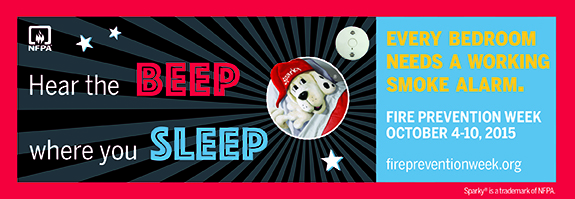|
The Colestin Rural Fire District is no longer operational. As a courtesy to our local community, this website will continue to be maintained on a limited basis and for a limited period of time; however, we are no longer liable for responding to fire calls, medical calls, or any other emergencies. We have not yet been annexed into Jackson County Fire District 5, although we will have their support during fire season, so at this time, District 5 is not primarily responsible for responses within our district. Instead, all calls should be directed to 9-1-1. The appropriate resources will be dispatched accordingly, and as they are available.
|
||||||||||
|
||||||||||
|
HOME HEATING SAFETY: "According to the U.S. Fire Administration (USFA), heating is the second leading cause of home fires following cooking." "Taking simple steps can prevent a fire from happening in your home. The National Fire Protection Association and USFA offer these heating safety tips, including: • Keep anything that can burn at least three feet away from a fireplace, wood stove, or space heater; • Make sure the fireplace has a sturdy screen to stop sparks from flying into the room; • Always use the right kind of fuel, specified by the manufacturer, for fuel-burning space heaters; and • Remember to turn portable heaters off when leaving the room or going to bed." "For more ways to have a fire-safe home when the mercury dips, check out this USFA resource guide [https://www.usfa.fema.gov/downloads/pdf/publications/heating_fire_safety_vertical.pdf] to share with family and friends." Also see: Home heating safety tips (NFPA): http://www.nfpa.org/safety-information/for-consumers/causes/heating/heating-safety-tips.
Reproduced from NFPA's Fire Prevention Week website, www.firepreventionweek.org. © 2015 NFPA. Home fires often become devastating and sometimes deadly not because there aren't any smoke alarms, BUT BECAUSE THE BATTERIES HAVE FAILED, delaying discovery. This is avoidable! Working smoke alarms provide a crucial time advantage and can help to save your home, your life, and the lives of your family members. Make sure your smoke alarms are all working, with FRESH batteries. While the NFPA designated the week of Oct. 4-10, 2015, as Fire Prevention Week, we focused on home fire safety and prevention throughout the fall. Visit http://www.nfpa.org/safety-information/fire-prevention-week and FAST FACTS ABOUT FIRE (http://www.nfpa.org/safety-information/fire-prevention-week/fast-facts-about-fire) for more information and fire safety tips. Additional fire safety and prevention information is also available from the U.S. Fire Administration.
Some ADDITIONAL TIPS (from Jackson County Fire District 3 & Rogue Valley firefighters):
FEMA Reminders (from the Federal Emergency Management Agency's e-news): "...[P]repare your home for fire emergencies by changing
the batteries in your smoke alarms. • Put smoke alarms on every floor of your home, including every bedroom and the hallway outside of each sleeping area; • Test smoke alarms monthly; • Change the smoke alarm battery at least once per year; • Replace smoke alarms that are more than ten years old; and • Develop a home fire escape plan so that everyone knows two ways out and knows a safe place to meet. Practice your plan twice per year. To learn more about fire escape planning, check out this USFA public service announcement [youtube video: "Fire Safety: Have Two Ways Out"]." What’s Your Extinguisher Type? "In an emergency, a portable fire extinguisher can save lives and property when used to put out a small fire. However, when it comes to extinguishers, one type does not fit all. " Did you know there are several types of fire extinguishers? Each one is designed to extinguish different kinds of fires: • A: For use with materials like cloth, wood, and paper; • A-B-C or B-C: Multi-purpose fire extinguishers best suited for home use. Most home improvement stores carry fire extinguishers that cover class A through class C; • B: For use with combustible and flammable liquids like grease, gasoline, oil and oil-based paints; • C: For use with electrical equipment like appliances, tools, or other equipment that is plugged in; • D: For use with flammable metals like aluminum, magnesium, and titanium; and • K: For use with vegetable oils, animal oils, and fats in cooking appliances. "Before using an extinguisher, please keep in mind that the U. S. Fire Administration recommends that only people trained in the proper use and maintenance of fire extinguishers consider using them when appropriate! Contact your local fire department for training information." REMINDERS:
Home Safety Reminders:Preparedness and prevention is your best defense. For more Winter Fire Safety information:
|

